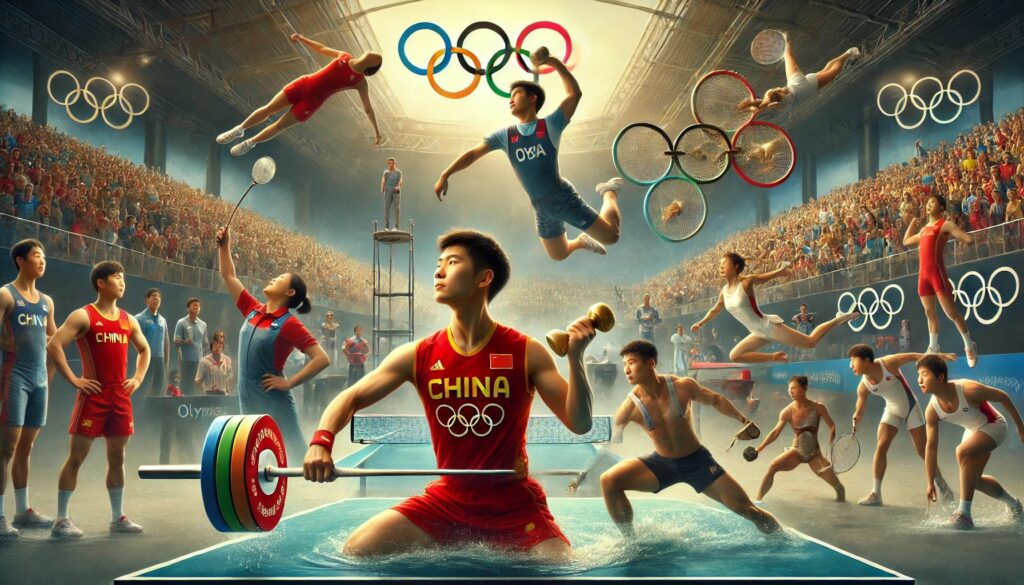
- China’s success has been a result of very deliberate policies and careful implant of the idea of being the best with various methods in the minds of athletes to increase their performance output.
- The rigorous training indeed produced results and medals, but the pressure on athletes to win ‘for the country’ took its toll on many.
- This intense mentality and the strive to become the best has left China nothing but success, even though it has used brutal methods to achieve its goal of becoming a sporting superpower.
China is the first country since 1936 to break the monopoly of the United States-Soviet Union, by ending at the top of the Olympic gold medal tally. China first competed in the Olympics in 1984, the Summer Olympics of Los Angeles, in which it won about 32 medals, 15 being gold among them. China has been among the top-performing countries since then. The communist party of China had just opened up its gates of economy and society, and they needed a way to integrate with the world, where it found sports as one of the best ways to give an idea and perception about the country and its citizens. The Olympics was perhaps one of the international organizations providing a world stage, where China had to cement its presence.
The communist government was eager to endorse the reformist ideas as the now stagnant economy had started to boom. One of the ideas was to host the Olympics which it did in the 2008 Summer Olympics. As years passed the rigid society of China and any questioning against the communist regime in China was found to be overshadowed by China’s success in various sports across competitions. It believed sports is one of the best ways to reimburse any lost faith and status of Communist China’s government. China’s concept of ‘National Rejuvenation’, which is to restore the valour and glory of ancient China and to emerge from the colonial ‘humiliation’ of the West and Japan, had driven China’s spirit to be the best in any case, including sports. Well, how does China exactly manage this?
China’s success has been a result of very deliberate policies and careful implant of the idea of being the best with various methods in the minds of athletes to increase their performance output. Rechelle Hawkes, three-time Olympic hockey gold medal winner, says, “China has a culture where they try hard to get to the next level.” Chinese athletes have the predetermined mindset not to win a podium but nothing less than a gold which makes them a fierce opponent in any sports they participate.
In China, children at an early age are encouraged to enrol in sports like gymnastics and table tennis at specialized training institutions. For families and children from poorer and rural backgrounds, these centres were attractive options as they provided food and other necessities. The rigorous training indeed produced results and medals, but the pressure on athletes to win “for the country” took its toll on many. There were also cases of state-sanctioned doping. The small odds of success as a professional athlete meant that children, who spent their youth engaged in sports rather than school, often struggled to find alternative career opportunities later in life. Till 2001 China had a drive to just be one of the top medal winners and showcase its talent, but since 2001 when it won the right to stage the 2008 Olympics, China had a much more rigorous cause and reasons for better preparations.
A report in China Youth Daily estimated that the cost of preparing China’s athletes for Beijing 2008 was close to $586 million. China was much more determined than its rivals to get the formula of success right. The rumours of the existence of Project 119, which China has denied, were the first indicator of China’s determination. Project 119 is supposedly an elaborate plan devised around certain sports that are guaranteed to yield more gold medals, than single-medal disciplines. The credit for China’s success goes to a much different reason, which is the willingness to hire the best professional coaches around the world to train their athletes to break their barriers and to be moulded into a much more successful team.
For the Beijing Olympics, it hired as many as 38 foreign coaches with a very high salary pay with the condition of success or nothing. But a much more definitive factor that played along with the introduction of coaches was the intense work ethics of the players with some even remarking the best and the hardest working in the world. This is more likely an indirect result of China’s unified school system, which is an old communist-styled regime system, in which children are divided based on their appearance from a young age, where smaller children go on to become gymnasts and divers, taller ones go into basketball and other sports. They have little freedom of choice and children who prove to be the best are sent away from their homes, with intense training and filling their minds with only being the best and nothing else, putting a lot of pressure on their minds from a very young age. This intense mentality and the strive to become the best has left China nothing but success, even though it has used brutal methods to achieve its goal of becoming a sporting superpower.
Although not as brutal as China, India can learn from China’s determination to be the best, rather than blame it simply on food habits and bad genetics.
(Views expressed are the author’s own)
